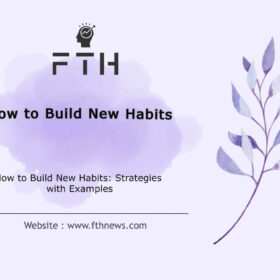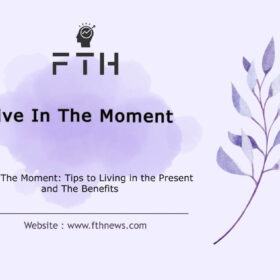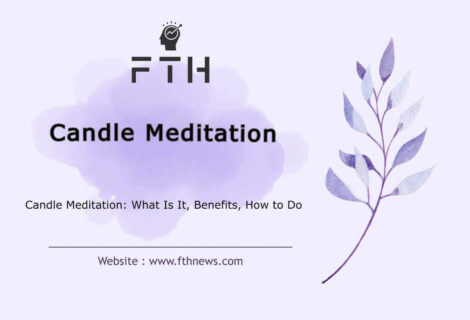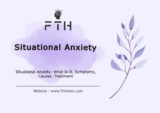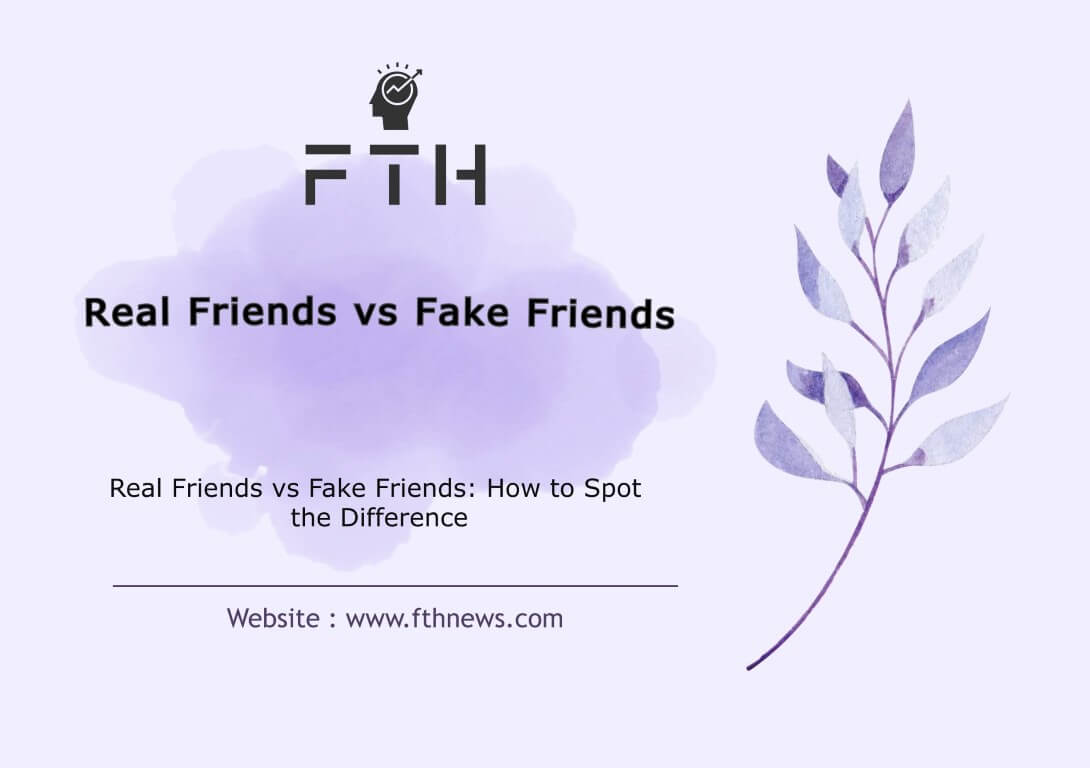
Real Friends vs Fake Friends: In the vast landscape of friendships, navigating between real friends and fake friends can be a challenging journey. Many of us have encountered individuals who initially seem genuine but later reveal their true colors, leaving us questioning the authenticity of our connections. In this guide, we’ll explore the defining characteristics of both real and fake friends, equipping you with the knowledge to discern genuine companionship from superficial alliances.
Characteristics of Real Friends:
They Stand by You Through Thick and Thin:
True friends aren’t just there for the good times; they’re a constant source of support through life’s trials and tribulations. Whether you’re facing a personal crisis, a challenging situation, or simply feeling overwhelmed, a real friend will stand by your side, offering unwavering support and understanding. They’ll lend a listening ear, provide a comforting shoulder to lean on, and offer practical help when needed. Their presence remains steadfast, serving as a beacon of light even in the darkest of times. True friendship shines brightest when it’s needed most, and genuine companionship is a lifeline that we can always rely on.
Genuine Happiness for Your Success:
In a world where envy and competition often overshadow genuine happiness, true friends stand out for their ability to wholeheartedly celebrate your successes and achievements. Instead of feeling threatened or resentful, they rejoice in your accomplishments as if they were their own. Whether you land a dream job, achieve a personal milestone, or simply experience moments of joy and fulfillment, authentic friends are there to share in your happiness and cheer you on every step of the way. Their support is unconditional, their applause genuine, and their pride in your achievements unwavering. In the presence of true friendship, success isn’t just celebrated—it’s multiplied, as the joy of one becomes the joy of both.
Quick to Forgive, Eager to Move Forward:
Real friends recognize that no one is perfect, and mistakes are a natural part of the human experience. What sets them apart is their ability to swiftly forgive and move forward, prioritizing the preservation of the friendship over holding onto past grievances. Rather than harboring resentment or dwelling on past errors, they choose to focus on the present and future, understanding that forgiveness is essential for maintaining a positive and healthy relationship. Their willingness to extend grace and understanding creates an atmosphere of trust and openness, allowing the bond between friends to flourish and grow stronger with each passing day.
Respectful of Your Individuality:
Genuine companions honor and celebrate the uniqueness of each individual, recognizing that diversity of opinions, beliefs, and boundaries enriches the fabric of friendship. They create a safe and inclusive space where you feel valued and respected for who you are, free to express yourself authentically without fear of judgment or criticism. Whether you hold differing viewpoints, come from diverse backgrounds, or have distinct preferences and boundaries, true friends embrace these differences with an open heart and mind. By fostering an environment of mutual understanding and acceptance, they cultivate a deep sense of belonging and camaraderie, where every voice is heard and every perspective is valued.
Active and Attentive Listening:
True friends don’t just hear you; they actively listen with both their ears and their hearts. They prioritize meaningful conversations, engaging with your thoughts, feelings, and experiences with genuine interest and empathy. When you speak, they give you their full attention, offering validation, understanding, and support without judgment or interruption. Their ability to empathize with your joys and sorrows, to celebrate your triumphs and share in your struggles, strengthens the bond between you, fostering a deep sense of connection and intimacy. In the presence of a true friend, you feel seen, heard, and understood, knowing that your words matter and your feelings are valued.
Reciprocal Effort and Initiative:
Authentic friendships are built on a foundation of mutual effort and reciprocity, where both parties actively contribute to the relationship’s growth and well-being. It’s not just about one person making all the plans or reaching out first; it’s a collaborative effort where both friends are equally invested in nurturing the bond. From initiating conversations and making time for one another to offering support and encouragement, genuine companions demonstrate their commitment to the friendship through their actions. They understand that maintaining a meaningful connection requires effort from both sides and are willing to go the extra mile to ensure that the relationship flourishes and thrives. In a reciprocal friendship, the give-and-take is balanced, the support is mutual, and the bond is unbreakable.
Active and Attentive Listening:
True friends don’t just hear you; they actively listen with both their ears and their hearts. They prioritize meaningful conversations, engaging with your thoughts, feelings, and experiences with genuine interest and empathy. When you speak, they give you their full attention, offering validation, understanding, and support without judgment or interruption. Their ability to empathize with your joys and sorrows, to celebrate your triumphs and share in your struggles, strengthens the bond between you, fostering a deep sense of connection and intimacy. In the presence of a true friend, you feel seen, heard, and understood, knowing that your words matter and your feelings are valued.
Reciprocal Effort and Initiative:
Authentic friendships are built on a foundation of mutual effort and reciprocity, where both parties actively contribute to the relationship’s growth and well-being. It’s not just about one person making all the plans or reaching out first; it’s a collaborative effort where both friends are equally invested in nurturing the bond. From initiating conversations and making time for one another to offering support and encouragement, genuine companions demonstrate their commitment to the friendship through their actions. They understand that maintaining a meaningful connection requires effort from both sides and are willing to go the extra mile to ensure that the relationship flourishes and thrives. In a reciprocal friendship, the give-and-take is balanced, the support is mutual, and the bond is unbreakable.
Unconditional Love and Acceptance:
Real friends provide a sanctuary of acceptance and love, where you can be your authentic self without fear of judgment or rejection. They embrace your flaws and imperfections, recognizing that these are what make you uniquely beautiful and deserving of love. Instead of focusing on your shortcomings, they celebrate your strengths and virtues, cherishing the essence of who you are. In their eyes, you are enough just as you are, and their love for you knows no bounds. Their unconditional acceptance creates a space where you can grow and evolve, knowing that you are always valued and cherished for the person you are, flaws and all.
Loyalty and Trustworthiness:
Genuine companions are unwavering in their loyalty and trustworthiness, standing by your side through the highs and lows of life with unwavering support and solidarity. They prioritize your trust with integrity and honesty, safeguarding your confidences and respecting your boundaries with the utmost discretion. Whether you’re sharing your deepest secrets or seeking guidance in times of need, you can trust that your true friend will always have your back, advocating for your best interests and defending your honor with unwavering loyalty. Their steadfast presence is a beacon of strength and reliability, grounding you in the knowledge that you are never alone, no matter what challenges may arise.
Non-Judgmental Support:
True friends serve as pillars of support, offering unwavering assistance without passing judgment or criticism. In times of adversity and hardship, they provide a comforting presence, offering solace, empathy, and encouragement to help you navigate life’s challenges. Whether you’re facing a personal crisis, grappling with difficult decisions, or simply feeling overwhelmed by the weight of the world, your true friend is there to lift you up, offering a shoulder to lean on and a listening ear to confide in. Their unconditional support creates a safe space where you can be vulnerable and authentic, knowing that you are accepted and loved for who you are, flaws and all.
Positive Influence and Uplifting Energy:
Authentic friendships are characterized by a radiant energy that uplifts the spirit and fills the heart with joy. True friends exude positivity and optimism, infusing every interaction with laughter, warmth, and camaraderie. In their presence, you feel uplifted and inspired, buoyed by their infectious enthusiasm and zest for life. Whether you’re sharing stories, embarking on adventures, or simply enjoying each other’s company, their positive influence leaves a lasting impression, brightening your days and reminding you of the beauty and wonder of the world. Their unwavering support and encouragement serve as a beacon of hope, guiding you through life’s ups and downs with grace and resilience.
Respect for Your Time and Boundaries:
Real friends understand the value of time and prioritize your well-being above all else. They respect your boundaries and commitments, honoring your need for space, privacy, and self-care without hesitation. Whether you’re juggling work, family, or personal responsibilities, your true friend is mindful of your time and energy, never imposing or demanding more than you can give. They value the sanctity of your time together, cherishing each moment spent in each other’s company and making every interaction meaningful and fulfilling. Their respect for your boundaries fosters a sense of trust and mutual understanding, strengthening the bond between you and ensuring that your friendship remains strong and resilient over time.
Identifying Signs of Fake Friends:
Inconsistent Presence During Challenges:
Fake friends reveal their true colors when faced with adversity, often displaying an inconsistent presence during your times of need. Instead of offering support and solidarity, they may be noticeably absent, making excuses or disappearing altogether when you require their assistance the most. Whether you’re navigating a personal crisis, coping with loss, or facing difficult decisions, their lack of reliability and commitment becomes glaringly apparent, leaving you feeling abandoned and alone. Their absence during your darkest moments highlights the superficial nature of the relationship, underscoring their inability to provide genuine support and empathy when it matters most.
Engagement in Gossip and Negativity:
Real Friends vs Fake Friends: Inauthentic companions thrive on drama, gossip, and negativity, using these toxic behaviors to elevate themselves at the expense of others. Instead of fostering a supportive and uplifting environment, they actively engage in spreading rumors, stirring up conflict, and undermining the confidence and reputation of those around them. Their propensity for gossip and negativity creates a toxic atmosphere of mistrust and insecurity, eroding the foundation of trust and mutual respect within the friendship. Rather than lifting each other up, they revel in tearing others down, prioritizing their own ego and status over the well-being of those around them. In the presence of fake friends, gossip and negativity become the currency of social interaction, poisoning the integrity and authenticity of the relationship.
Manipulative Guilt-Tripping:
Real Friends vs Fake Friends: Fake friends often resort to manipulative tactics to control and manipulate the dynamics of the relationship. One common strategy they employ is guilt-tripping, wherein they use emotional manipulation to make you feel responsible for their own shortcomings and failures. They may twist your words, exaggerate their grievances, or play the victim to elicit sympathy and attention. By placing the blame on you and evoking feelings of guilt or shame, they seek to assert power and control over you, undermining your confidence and self-worth in the process. Their manipulative behavior creates a toxic dynamic of dependency and obligation, eroding the trust and authenticity of the friendship.
Jealousy and Envy:
Real Friends vs Fake Friends: Insecure friendships are plagued by jealousy and envy, with fake friends unable to genuinely celebrate your success and happiness. Instead of rejoicing in your achievements, they harbor feelings of resentment and envy, viewing your accomplishments as a threat to their own ego and self-worth. Their insecurity manifests in subtle or overt displays of jealousy, ranging from passive-aggressive comments to outright sabotage. Rather than lifting you up, they seek to tear you down, sabotaging your efforts and undermining your confidence to maintain their own sense of superiority. In the presence of fake friends, jealousy and envy become toxic undercurrents that poison the integrity and authenticity of the relationship.
Superficial Conversations and Lack of Interest:
Real Friends vs Fake Friends: Inauthentic companions often prioritize shallow interactions and lack genuine interest in deepening the relationship. Instead of engaging in meaningful conversations that foster connection and understanding, they steer discussions towards themselves and their own concerns, neglecting to inquire about your thoughts, feelings, and experiences. Their superficial approach to communication leaves you feeling unheard and undervalued, as they fail to invest the time and effort required to nurture a genuine connection. Rather than seeking to understand you on a deeper level, they remain focused on surface-level interactions, perpetuating a sense of distance and disconnection within the friendship.
Judgmental Attitudes and Criticism:
Real Friends vs Fake Friends: Fake friends are quick to impose their beliefs and values onto you, judging and criticizing your choices without empathy or understanding. Instead of offering support and encouragement, they adopt a judgmental attitude, viewing your decisions through the lens of their own biases and prejudices. Their critical stance undermines your confidence and autonomy, leaving you feeling invalidated and misunderstood. Whether it’s your career choices, lifestyle preferences, or personal beliefs, they fail to respect your autonomy and individuality, seeking to mold you into their own image of what they believe you should be. In the presence of fake friends, judgment and criticism become weapons of control and manipulation, eroding the trust and authenticity of the relationship.
Unreliability and Broken Promises:
Real Friends vs Fake Friends: Fake friends often exhibit inconsistent behavior and fail to uphold their commitments, leaving you feeling disappointed and let down. They make promises they have no intention of keeping and frequently bail on plans at the last minute, without regard for your time or feelings. Their unreliability erodes the foundation of trust within the friendship, leaving you questioning their sincerity and dedication. Instead of prioritizing your relationship and honoring their word, they prioritize their own convenience and whims, demonstrating a lack of respect and consideration for your needs. In the presence of fake friends, broken promises become a recurring pattern, highlighting their inability to follow through on their commitments and uphold the integrity of the relationship.
Self-Centered and One-Sided Relationships:
Real Friends vs Fake Friends: Fake friends are inherently self-centered and prioritize their own needs and desires above yours. They view the friendship as a means to fulfill their own agenda and gratify their ego, without regard for your well-being or happiness. Instead of reciprocating your efforts and investing in the relationship, they expect you to cater to their every whim and demand, leaving you feeling exhausted and unappreciated. Their one-sided approach to friendship creates an imbalance of power and fosters resentment and frustration within the relationship. Rather than fostering mutual respect and understanding, they exploit your kindness and generosity for their own gain, leaving you feeling used and undervalued. In the presence of fake friends, self-centeredness and exploitation become hallmarks of the relationship, eroding the trust and authenticity of the bond.
Emotional Manipulation and Gaslighting:
Real Friends vs Fake Friends: Inauthentic companions resort to manipulation and gaslighting as tools to control and dominate the dynamics of the relationship. Through emotional manipulation, they exploit your vulnerabilities and insecurities, using guilt, fear, and shame to manipulate your thoughts and feelings for their own gain. Gaslighting involves distorting reality and undermining your confidence, causing you to doubt your perceptions and question your sanity. They may invalidate your emotions, minimize your experiences, or twist the truth to suit their narrative, leaving you feeling confused, isolated, and powerless. Their manipulative tactics create a toxic atmosphere of control and coercion, eroding your sense of self-worth and autonomy within the relationship. In the presence of fake friends, emotional manipulation and gaslighting become weapons of manipulation and control, used to maintain power and dominance over you.
Conditional Support and Opportunism:
Real Friends vs Fake Friends: Fake friends offer support only when it benefits them, exploiting your vulnerabilities and discarding you when you no longer serve their interests. They view the friendship as a transactional arrangement, where they expect to receive more than they give and prioritize their own needs and desires above yours. Their support is conditional, contingent upon what they stand to gain from the relationship, rather than genuine care or concern for your well-being. When you no longer serve their interests or meet their expectations, they discard you without hesitation, leaving you feeling used and disposable. Their opportunistic approach to friendship creates a sense of betrayal and disillusionment, as you realize that their loyalty was never genuine and their intentions were always self-serving. In the presence of fake friends, conditional support and opportunism become hallmarks of the relationship, eroding the trust and authenticity of the bond.
Real Friends vs. Fake Friends Quiz
1. When you’re going through a tough time, your friend:
a) Listens attentively and offers support without judgment. b) Disappears or makes excuses to avoid being there for you.
2. Your friend’s reaction to your success and achievements is:
a) Genuine happiness and celebration. b) Envy or indifference, with little to no acknowledgment of your accomplishments.
3. How does your friend handle disagreements or conflicts?
a) They communicate openly and respectfully, seeking to resolve issues together. b) They resort to manipulation or gaslighting, blaming you for their own shortcomings or trying to invalidate your feelings.
4. When you need help or support, your friend:
a) Is there for you, offering assistance and encouragement. b) Only reaches out when they need something from you, then disappears when you need them.
5. Your friend’s attitude towards your boundaries and autonomy is:
a) Respectful and understanding, they honor your boundaries and support your decisions. b) Dismissive or critical, they try to impose their beliefs and values onto you, disregarding your autonomy.
6. How does your friend react to your vulnerabilities or insecurities?
a) They offer empathy and support, reassuring you that you’re not alone. b) They exploit your vulnerabilities for their own gain, using emotional manipulation or gaslighting to control and dominate the relationship.
7. When you spend time together, your friend:
a) Engages in meaningful conversations and shows genuine interest in your life. b) Steers conversations towards themselves and their own concerns, displaying a lack of interest in your thoughts or feelings.
8. Your friend’s reliability and consistency are:
a) Dependable, they follow through on their commitments and uphold their promises. b) Unreliable, they often bail on plans or make excuses to avoid being there for you when you need them most.
9. How does your friend handle your successes or achievements?
a) They celebrate your accomplishments and cheer you on with genuine happiness. b) They downplay your achievements or respond with jealousy and resentment.
10. Your friend’s loyalty and trustworthiness are:
a) Unquestionable, they stand by your side through thick and thin, honoring your trust and confidentiality. b) Questionable, they betray your trust or gossip behind your back, prioritizing their own interests over your well-being.
Scoring:
Count the number of “a” and “b” responses you selected.
- Mostly “a”: Congratulations, you have genuine friends who value and support you unconditionally! Keep nurturing these relationships and cherish the bonds you’ve built.
- Mostly “b”: It’s possible that some of your friendships may be superficial or toxic. Consider reassessing these relationships and setting boundaries to protect your well-being. Surround yourself with friends who uplift and empower you, rather than drain your energy or manipulate your emotions.
This quiz is designed to help you reflect on the characteristics of your friendships and identify any red flags that may indicate a fake friend. Remember, true friends uplift and support you, while fake friends may exhibit manipulative or self-serving behavior. Trust your instincts and prioritize relationships that bring positivity and joy into your life.
Conclusion Real Friends vs Fake Friends:
Distinguishing between Real Friends vs Fake Friends is an essential aspect of nurturing meaningful connections and safeguarding our emotional well-being. By recognizing the defining characteristics of authentic companionship and staying vigilant against the red flags of inauthentic relationships, we empower ourselves to cultivate enriching friendships built on trust, respect, and mutual support. Remember, true friendship is a precious gift that deserves to be cherished and nurtured with care and sincerity.


